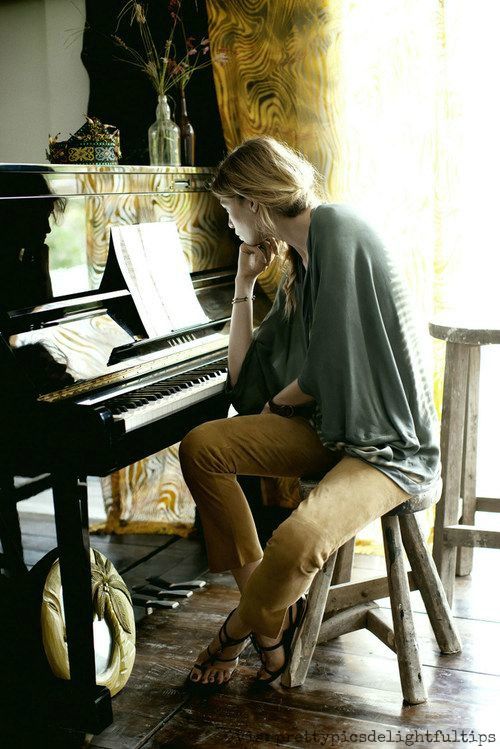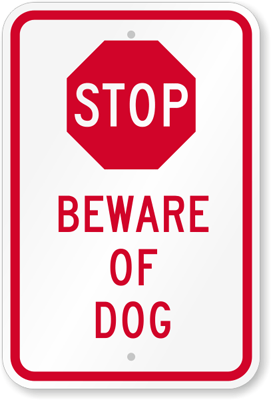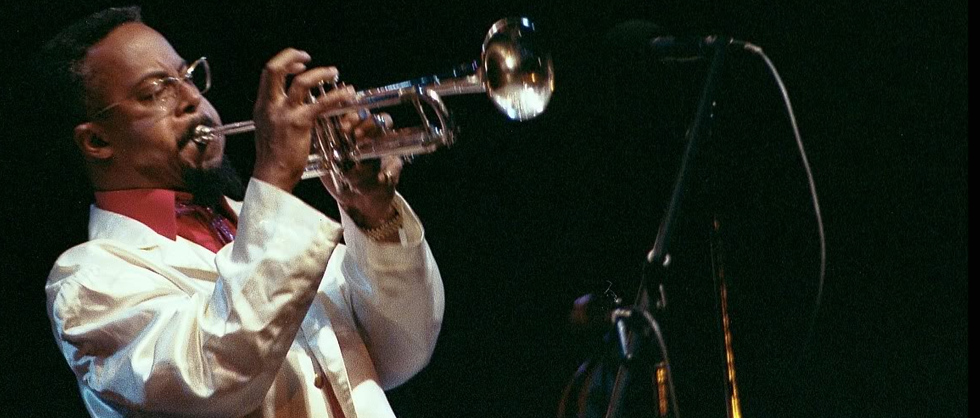I first came to an awareness of the connecting line between music and linguistic consciousness when I began listening carefully to the guitar work of Jerry Garcia, Eric Clapton, Jimi Hendrix, et al. Guitar solos of all kinds are like a special language that would be spoken by the human soul before it is born into the world. Everything from gentle, dancing sonic expressions of love and joy to the waling and shrieking sense of desperation anyone would feel before they had learned to speak about this world where so much unnecessary hate and selfishness get in the way of human growth and dignity.
Each note played on piano is the sound of water dropping onto some form of pure liquid surface tension, tonally seeking the light and color that is the basis of happiness each of us was born with. Piano technology transfers the pressure of fingers to levers connected to hammers that descend and strike taught wire cord inside an amplifying box. Imagine being filled with hope or joy or desire but having no language to describe that, and no real memory or even understanding to discern anything. Imagine finally having the chance to express that unstained joy with your fingers and your understanding of emotion and language spinning together. All of this I feel like I came to understand under the surface of life in the 1970s listening mostly to improvisational work by Keith Jarrett, Chick Corea, and Herbie Hancock. But the phenomenon is in every work ever created by competent pianists in all forms.
I was surrounded by music in my early years. My father had almost become a conductor, but decided eventually that he liked being around scientists and intellectuals more than musicians and artists. Still, he played Mahler, Brahms, Bach, Mozart, and Beethoven at full volume in our house while he sat at his typewriter pounding out books and essays and reviews (all academic, but still…).

Beethoven and Mozart piano compositions I remember in particular. I learned Debussy and Chopin later in my life, falling deeply, deeply in love with a piano playing girl when we were fourteen. I used to sit and watch and listen to her work on performance pieces. She was so serious (at times comically so), and she worked hard to perfect her technique. My love grew and grew for her. So did my respect. I tried to communicate that emotion to her through the sound of her piano playing up through her fingers and arms and extending throughout her body (that I never beheld naked) hoping to somehow fill her heart with mine and to be filled by her in return. That love lasted a long time, far beyond our relationship. It still whispers through me sometimes as gentle memory when I hear complex, difficult piano work.
These days, I have learned to love trumpet most of all. During this past Covid Year, I have listened endlessly to Christian Scott aTunde Adjuah, Lee Morgan, early Miles Davis, Chet Baker, Matthew Halsall, Nils Petter Molvær, Matthieu Michel, Ibrahim Maalouf, Igmar Thomas, Dontae Winslow, and so many more. Trumpet somehow yields up a plethora of sensibilities, expressive dimensions, and intimate sonic spaces. It feels more pure and direct than saxophone or clarinet or trombone.

I keep thinking back to meeting Lester Bowie, the great trumpet master and a co-founder of the Chicago Art Ensemble (sometimes called the Art Ensemble of Chicago), when I was in college. I had no idea who the Art Ensemble was except that they were playing in our cafeteria that night. I did food service work to help get through college. Lester was there to set up for the gig. Somehow he got me to assist him moving in equipment and connecting the sound system. I bought him dinner not knowing who he was, but we had a great conversation where he asked me all about myself and must have realized early on that I was this clueless over-educated hippie-type, and likely didn’t know much about jazz. There was no subterfuge or illegitimacy in our talk. We had dinner, chatted, and then I went outside for a smoke. When I came back in he was gone. A few hours later, though, I received my first serious face slap by modern experimental jazz and also watched my new friend, Lester Bowie, dressed in a white laboratory coat, lead the Art Ensemble through some pretty freaking eccentric compositions with nothing but astounding musical intelligence and his trumpet. I’ve always been kind of chauvinistic about trumpet in the brass hierarchy ever since.
If babies could get happily drunk before they enter the universe and watch life unfold on TV for a time before they become more than a magical glint, the inebriated opinions they would offer about the world are what trumpets have sounded like here on earth for at least the last one hundred and twenty years. They are especially expressive now as we move, hopefully, beyond Planet Covid into whatever new world we shall shake up and down (and make a new mess of) together.


Just the idea of “unstained joy” fills me with happiness.
I also love your phrasing of being “kind of chauvinistic about trumpet in the brass hierarchy…”
The intriguing thought experiment of marrying music with “linguistic consciousness” makes sense to me since both are forms of communication, one through sound, one through (usually) the eyes, and both through emotion. I’ve tried to expand my music muscles into wider, stronger areas, but I just never seem to have the time. I admire the breadth and width of your musical sensibilities.
Also fascinating that your father made science a priority over music. Reason won out over stream of consciousness? My husband has a similar brain: he’s a writer, but he’s also very scientific-minded. I’m extremely lopsided only on the writing side, lol
LikeLiked by 1 person
I’m always thinking about the relationship between the creation of music and the creation of meaning. It’s all maybe an aftereffect from my love of Kerouac, Murakami, and Lewis Shiner.
The beauty of music (and all the arts) is that you can pursue them as a hobby or pastime all your life. Pursuing science as a form of personal entertainment is much more difficult and (probably) far less satisfying.
LikeLike